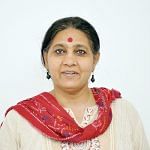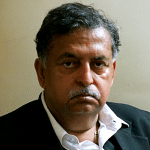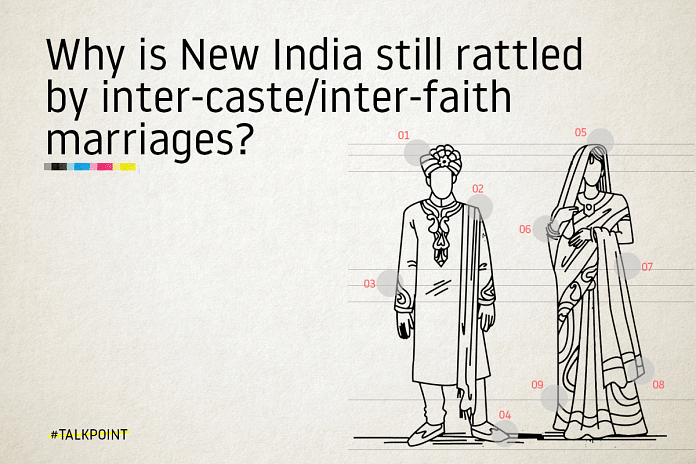Ankit Saxena was allegedly murdered by the family of his 20-year old Muslim girlfriend on 3 Feburary in west Delhi. The police have arrested the family and detained her teenage brother. The controversial incident has generated an online outcry and the trending hashtag #JusticeForAnkit
ThePrint asks: Why is New India still rattled by inter-caste/inter-faith marriages?
There is violent opposition to self-choice marriage but none against rising rapes
 Jagmati Sanghwan
Jagmati Sanghwan
CEC Member, All India Democratic Women’s Association
India has a democratic setup but the basic composition and construction of its society is caste and religion-based; even regional and language identities are pivotal here.
It has been in the interest of the ruling classes to keep Indian society divided on the lines of caste, class, religion and language. To contain discontent against themselves, they use these divisions for political and vote gain.
The murder of Ankit Saxena in New Delhi is also linked to the present context, where BJP, a Right-wing party subscribing to the Hindu nationalist ideology and the organisations and individuals backing it are trying to incite communal feeling to divide the society on religious line.
Terms like ‘love jihad’ are being coined to spread hate and fear against inter-religious marriages. In UP, where BJP is in power, it has started anti-Romeo quads to check self-choice relationships.
There is a political economy when it comes to honour killings. Common people think parents retaliate against choice marriage because of a gap of ideas and different generational thinking. However, if we analyse it further, it is linked to the socio-economic structure of our country.
In Haryana after having observed honour killings, we realised that choice marriage transcends the dowry system and the caste system. It creates an affirmative space for women in a marriage and provides them with dignity.
So, when an upper caste/upper class girl marries a landless or Dalit man, there is a shift of resources and power. The family thinks today she has turned hostile about marriage; tomorrow she’ll claim a right to property. They fear that caste/patriarchy/class will be shattered and a basis for an equitable civil society will be created. Fearing that they will lose their control over the caste/class/gender hegemony, the upper castes resort to violence.
Rapes of Dalit women don’t see a similar backlash across India but if women/men choose a partner then there is violence. Why is there violence and opposition against self-choice marriage where as there is no retaliation against even gang-rapes and long distance marriages taking place as a result of skewed sex ratio in the state?
The state machinery, which is supposed to protect the right of individuals to choose their life partner is unwilling to protect these people due to vote-bank consideration. They don’t protect the individuals, rather the police go out of their way to return the girl to her parents for making money.
India is a class-based society. Those in positions of power — the bureaucrats — don’t act because they share the same mindset. The state machinery is betraying the Constitution and the citizens’ right to choose.
We need a targeted law against honour killings and couple protection homes should be created in all states. Our organisation prepared and submitted a draft to NCW and the Law Ministry but the state is indifferent to it. We were told it will be misused like anti-dowry act and SC/ST act.
As long as there is no law, the criminals will continue to act with impunity. We also need a social reform movement against the caste, communal, and patriarchal system and values to form a responsible civil society.
A woman deciding her own life partner is still not acceptable in our society
 Asif Iqbal
Asif Iqbal
Co-Founder, Dhanak, an organisation for inter-caste/inter-faith marriages
The government has completely overlooked its role in marriage registration and the subsequent protection of couples who choose to marry with a person of their choice. The issue needs immediate attention. A judgment of the High Court in Chandigarh provided protection and safe homes for such couples in the states of Haryana and Punjab. Such measures could greatly help reduce suicides and violence against these couples, especially in Delhi.
Changes in state rules related to marriage registration and solemnisation will make things simpler for couples in need.
Although Ankit’s case has been given a communal colour, honour killings are often perpetrated within the same community. Honour killing is about privilege, not religion.
Even present day India is not prepared for the right to choose one’s own life partner. The moment the girl decides who she wants to marry, it becomes difficult for family to accept. It varies from case to case but caste and religion have been used as excuses to stop such marriages and justify honour killings.
A woman deciding her own life partner is not acceptable in our society.
The Special Marriage Act is the only civil marriage law available in India. It has nothing to do with religion or caste. Unfortunately, the period of notice for 30 days pushes the couple to have religious marriage instead. Either the man or the woman has to convert in case of such a religious marriage.
It has draconian provisions like a 30-day notice period where the declaration of the couple’s marriage is posted in a conspicuous place. Notices are sent to various offices. Intended marriage notices are even sent to the girl’s family (barring Delhi and Mumbai). In Uttar Pradesh, local intelligence unit (LIU) come and intimidate the family. They raise questions about why the woman is doing such a thing and say things like if she were my daughter I’d kill her. In Gurgaon and Faridabad, the marrying couple has to publicise in a newspaper before registration of their marriage. All these archaic norms are designed to discourage people from using the Special Marriage Act.
This is symptomatic of a patriarchal society. Caste and society have existed for millennia. Dhanak has tried to address the issue both — socially and legally. One needs to start by making the couples feel more confident about themselves and get rid of any residual guilt and shame. They need a support system.
The government needs to focus on schemes to make these couples, who are citizens of this country and constitutionally entitled to choose their own life partners, feel safe and less vulnerable.
Even Supreme Court protection isn’t enough for such couples
 Ranjan Lakhanpal
Ranjan Lakhanpal
Chairman, World Human Rights Council, lawyer fighting honour killing cases
Honour killings are dastardly and ought to be condemned by everybody. Such practices are not acceptable in a civil society, it is a barbaric approach to dealing with inter-faith and inter-caste couples. Anyone adopting this form of violence should be given an exemplary punishment.
Honour killings are not only limited to different castes and religions but also different regions. If a person from Uttar Pradesh develops a relationship with a woman from different regions, both are often murdered. I have fought more than 100 such cases. What is appalling is that many more are not reported.
Even in cases where the Supreme Court grants safety to the couple, they are not better off. I had a case where two students studying in Patiala decided to get married. The young woman was from architecture and the young man from engineering studies. I got them protection from the high court, and consequently, they eloped to Amritsar. Later, the girl’s brother told her that her father had a heart attack. Despite my advice that she should not go home because I thought it was a ruse, she went home. Subsequently, she was murdered.
What is the purpose of protection then? We need a better education system, people must be taught that honour killings need to stop. Social media can help usher in such reforms.
Rural societies are still very opposed to the idea of such unions. The urban educated classes are better and more open, but not all the time. Parents in India cannot deal with their children opposing their views. This mindset must change.
Liberalism isn’t a one-way street. You must be truly and transparently liberal whether it is Hadiya or Ankit
 Ratan Sharda
Ratan Sharda
Columnist and author ‘Secrets of RSS: Demystifying The Sangh’
I was deeply disturbed to hear about the murder of Ankit Saxena. It is a simple case of a love affair where a young man went to meet the parents and got killed for it. When we say that inter-religious marriages are welcome, such an incident shatters our faith in a harmonious society.
Those who have been saying that there is no ‘love jihad’ but a freedom of a Hindu/Christian girl to marry a Muslim boy and convert, are today trying to pass off the killing of a boy for a love affair of a Muslim girl with a Hindu boy as ‘honour killing’. Those who rightly decry ‘honour killing’ are today trying to normalise a brutal killing of a boy as ‘honour killing’. They forget that in the heinous and despicable crime in the name of supposed honour, family kills its own child. Here this was not the case. The saddest part is that Ankit didn’t kidnap the young woman, they weren’t trying to elope.
There are ample proofs and cases of Muslim boys cheating and luring Hindu girls to marry and change religion. Not only that, but even sell them off to ISIS jihadi groups. But we close our eyes to it and ridicule Hindus and Christians who talk about it. But when a Hindu boy doesn’t convert, nor elopes with the girl but requests parents to let them marry, the hate crime of his killing is more or less justified with sophisticated words. Some mainstream media reports have even tried to hide the religion of the murderers. It is plain hypocrisy.
Liberalism isn’t a one-way street. You must be truly and transparently liberal whether it is Hadiya or Ankit. This demonstrates the refusal of opinion makers to accept that love marriages are valid only if a Hindu or Christian girl converts Islam.
We need to stop trying to cover up such crimes by using clever terms. A person was killed because he was from a different religion. Let us not trivialise or justify this hate crime. In Kerala, love is a matter between two adults and not a deliberate ploy to convert and exploit a girl, but in Delhi, it is honour killing! We need to rethink what kind of a narrative we are creating.
Compiled by Deeksha Bhardwaj, Journalist at ThePrint.




That comparison is actually an apples-and-oranges.
“Inter-caste” is man-made within same religion (in two religions, classic-Hindu and Shinto, it’s an official tenet; in practice though, many who have converted out of these — unfortunately including some professing Christians — and their descendants continue this junk practice with it being the basis of the lumpen-bulk of the “honour-killings” in Pornistan, which dominates that category). Inter-faith marriage on the other hand is attempting to put together two quite-incompatible spiritual systems!